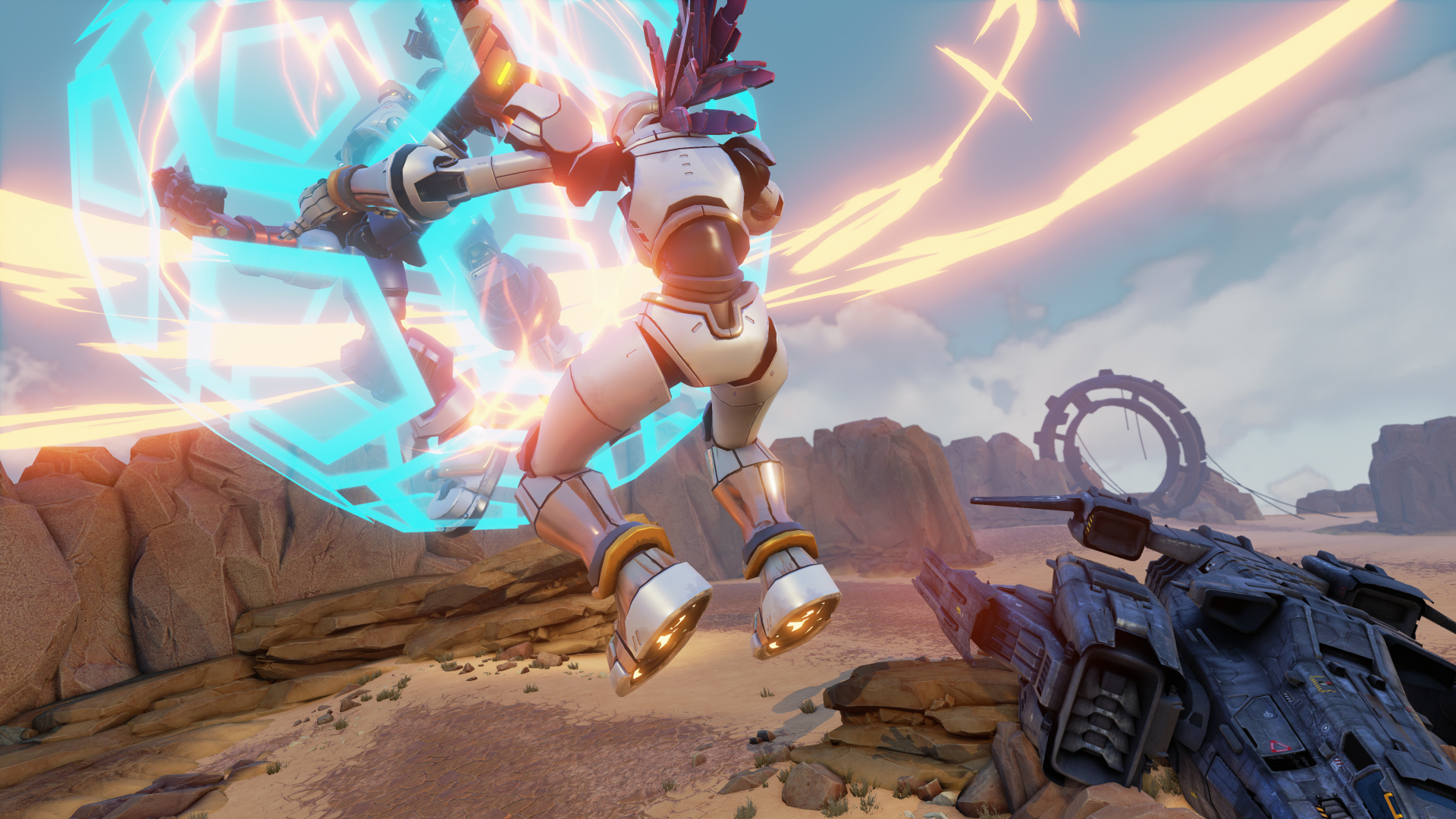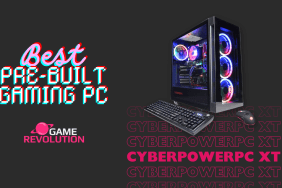Seth Killian aims for a storm of new fighting gamers.
After our meeting, if I were asked to characterize Seth Killian in a single phrase, I suppose I would describe him as "a fighting game evangelist." Making the case for a broader adoption of fighting games, one could say that Radiant Entertainment's robot fighting game, Rising Thunder, is the metaphorical Gospel to Killian's video game preacher. The game which aims to make fighters more accessible, since they have a steep learning curve and barrier in technical execution. As Killian described it, when someone outside of the fighting game world tries to break into it with their game of choice: "First pay $60, now begin training, in three-to-six months you get to play the actual game. There's a satisfaction to that, but it's not a satisfaction I have time for."
Killian is specific about it, mentioning that there are three things that create the barrier of entry that keeps 80-90% of players away from fighting games. One is cost, one is the poor implementation of online matches, and the third is that the game is "hidden behind an execution wall." This is probably what we spent the most time talking about, the difficulty of executing the moves; quarter-circle on the stick, then hit the correct buttons in the right sequence, all in the blink of an eye. Want to do the corresponding move that beats the attack? Repeat, but with different quick button and stick variants. Rising Thunder addresses all three issues, but does away with the execution issue completely, by assigning special and super attacks to individual buttons, allowing anyone who can learn the moveset to play at a competitive level.
Consistently throughout the meeting, Killian expressed his amazement that the game works. It's no fluke though—as a landmark competitive gamer and one of the creators of the 2D fighting game convention/championship EVO, Killian knows the game from both sides. He spent seven years at Capcom working on fighting game titles to revive the genre, before burning out on developing them for a short time. He then worked on Sony's Santa Monica Studio's external development team, helping produce games like The Unfinished Swan, before he eventually got bit again by the fighting game bug and left to form Radiant Entertainment. They're releasing their first two games simultaneously, Stonehearth and now Rising Thunder. Killian's amazement at the latter's success: "If you'd told me I'd be making this game two years ago, I'd have told you it was impossible, but it works."
I could see what he meant when we started playing the game. What I know about fighting game mechanics, I learned mostly from other people and what I've cobbled together from a few previews and reviews I've written. Every bit of strategy and the mental mechanics behind it, like frame-counting and knowing the proper mix of fireballs, blocks, grabs, throws, and counters, are all still there. Fighting games, Killian evangelizes, are at the sports level, a cross between poker and speed-chess; they're about bluffing your opponent or playing them into a position where you have an advantage, and then can exploit it. They're a quick decision-making mental game.
Knowing the move-set is like knowing which chess pieces can move where and when, but in fighting games right now, it's not enough to know the moves, you also have to be able to execute them. The way Killian describes the current way fighting games work makes it sound like having to do an elaborate quicktime event in order to move your rook or knight in a speed-chess game. The goal with Rising Thunder is to remove that component, and make it as purely about the tactics and the mind-game as possible.
The other analogies he made are that other competitive e-Sports titles don't have this technical execution component. No one playing Counter-Strike has to do a half-circle with a stick to perform a headshot, and there's no elaborate moveset to use an ultimate in Dota 2. So why not fighting games? The comparison to Dota 2 is no accident. Like MOBA commander/hero abilities, the specials in Rising Thunder have a cooldown timer "so that you can't just spam special attacks."
Rising Thunder is also meant to be played online, rather than on the same screen—another barrier to entry for some players. Fighting games have had issues in the past with online play involving lag, causing some players to use exploitative "lag tactics" in online matches that keep the game from being about skillful play and more about exploiting the technical problems of the system. Programmer Tony Cannon, whose PPGO Netcode solves these issues is a part of the Rising Thunder team. It makes for opportunities for play that haven't existed in fighting games before, that only really work with dual-screen play. Killian picks a character with an invisibility super and turns his screen so I can see it; when he activates it on mine he's invisible, but on his he can see his exact position.
Rising Thunder is free-to-play—though Killian is quick to want to distance himself from the term, assuring me that all monetization will be through cosmetic enhancement to your robot fighters with no no gameplay advantages (Team Fortress 2's hats are brought up in the conversation). Killian says that players go where the good games are and will pay for that value however it's presented.
Perhaps the most telling moment is when he talks about the conversion of Radiant's sysop guy, who didn't play many games at all apart from a few RPGs. Within a week, without the execution barrier, he was playing a credible competitive game, a far cry from the 3-6 months required just to learn how to execute the moveset. Rising Thunder is set to start its technical alpha on July 28th, and players can sign up at Radiant Entertainment's Rising Thunder website.
Rising Thunder Preview
-
Rising Thunder Preview #1
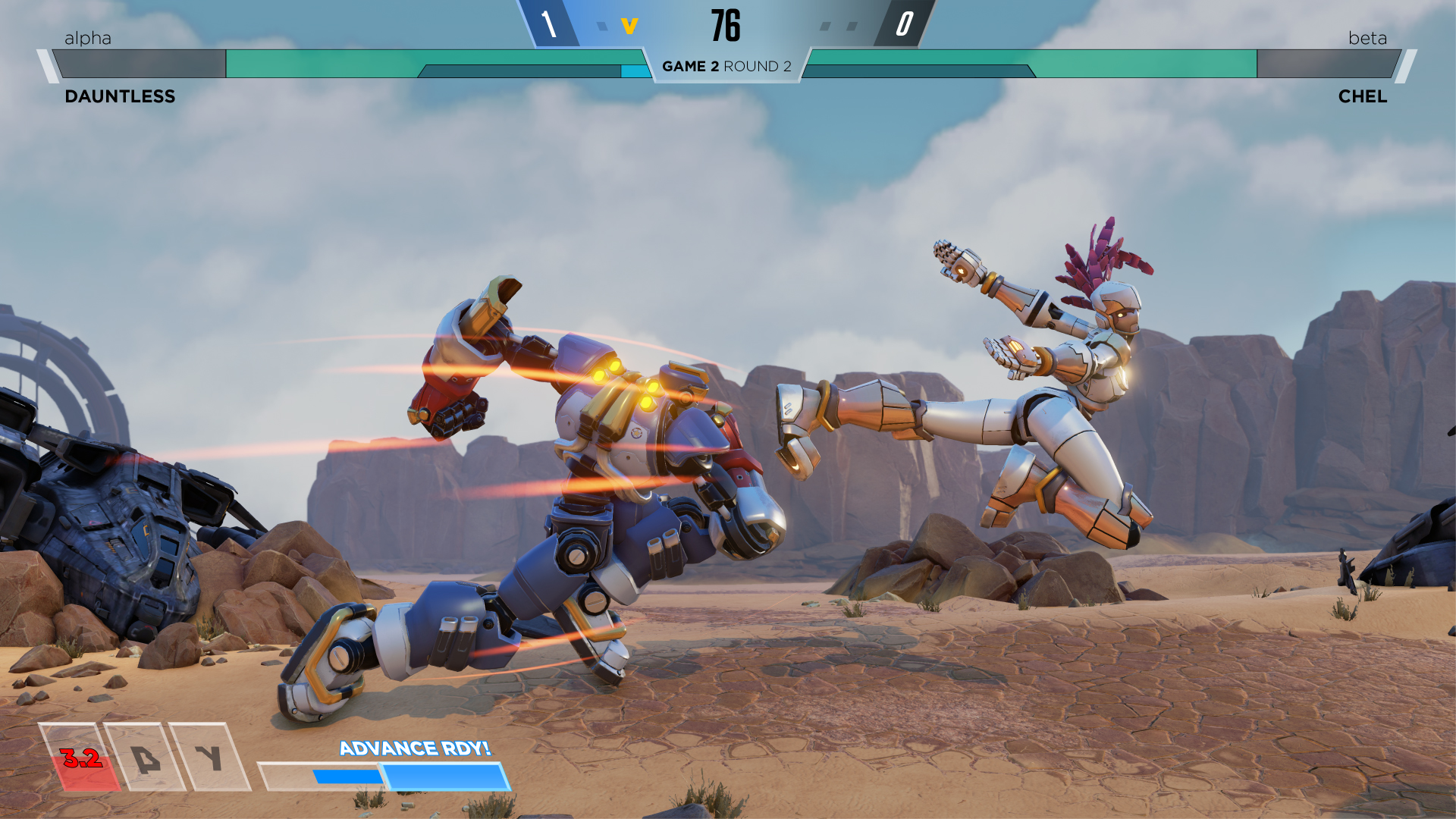
-
Rising Thunder Preview #2
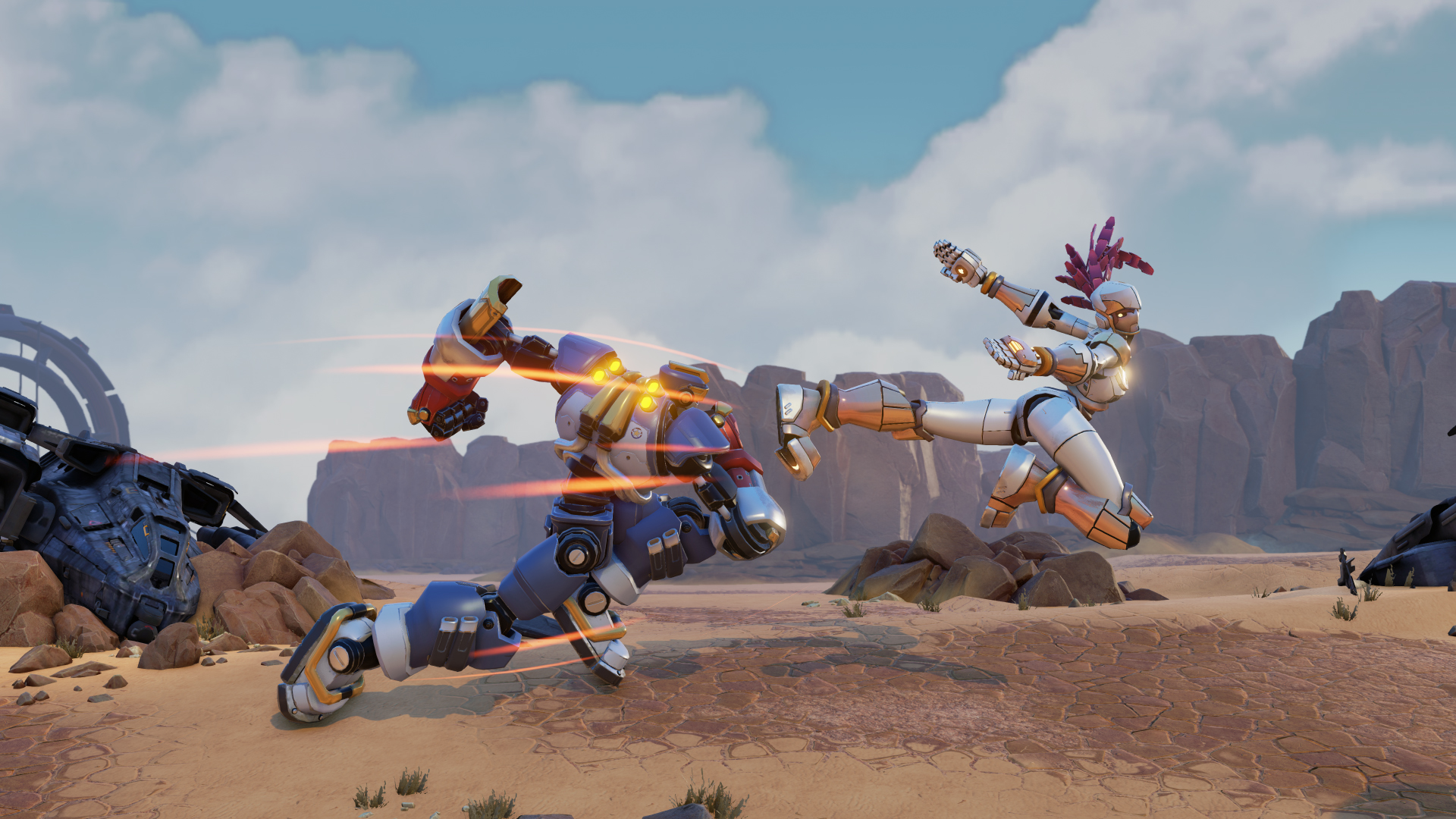
-
Rising Thunder Preview #3
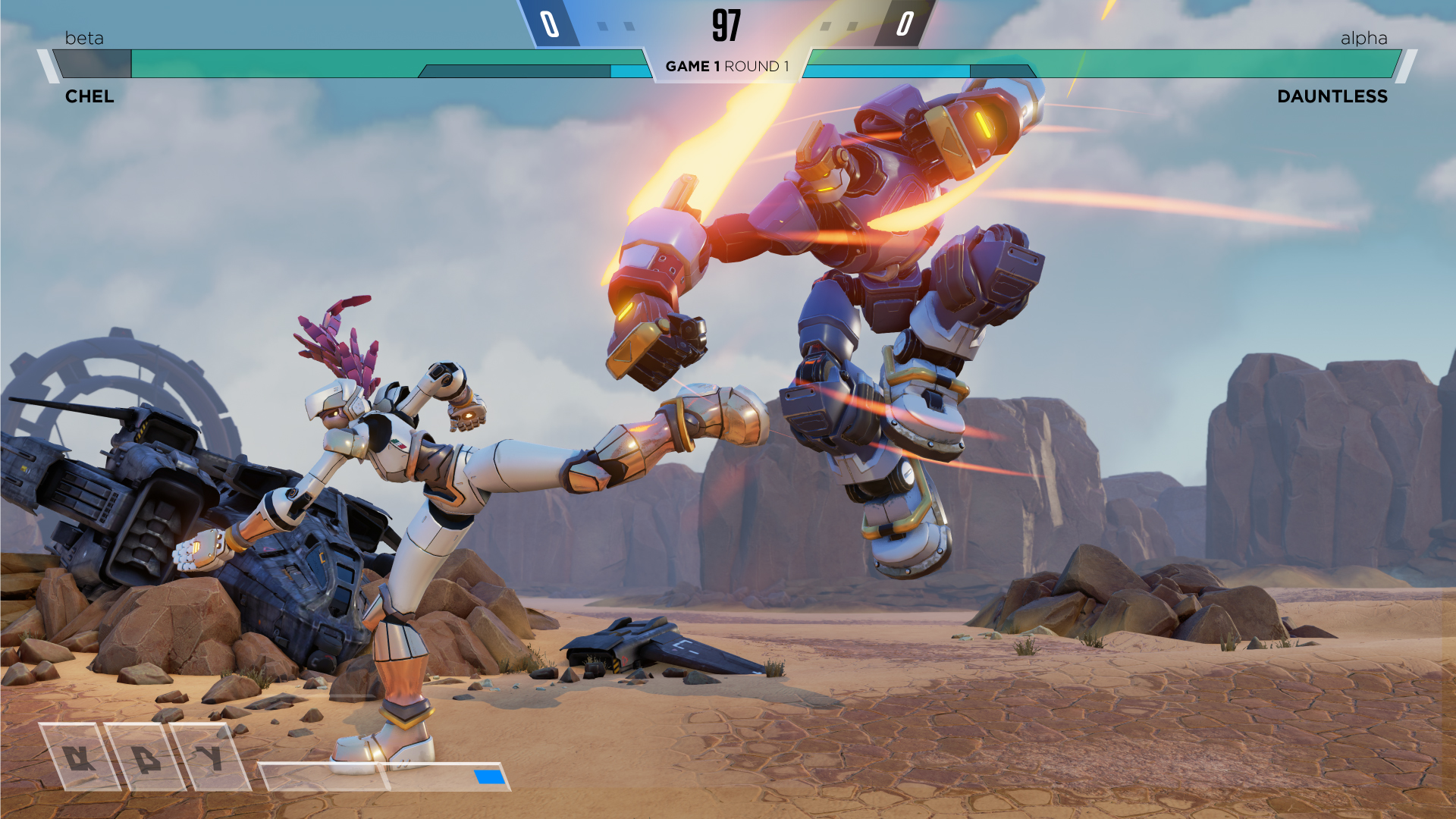
-
Rising Thunder Preview #4
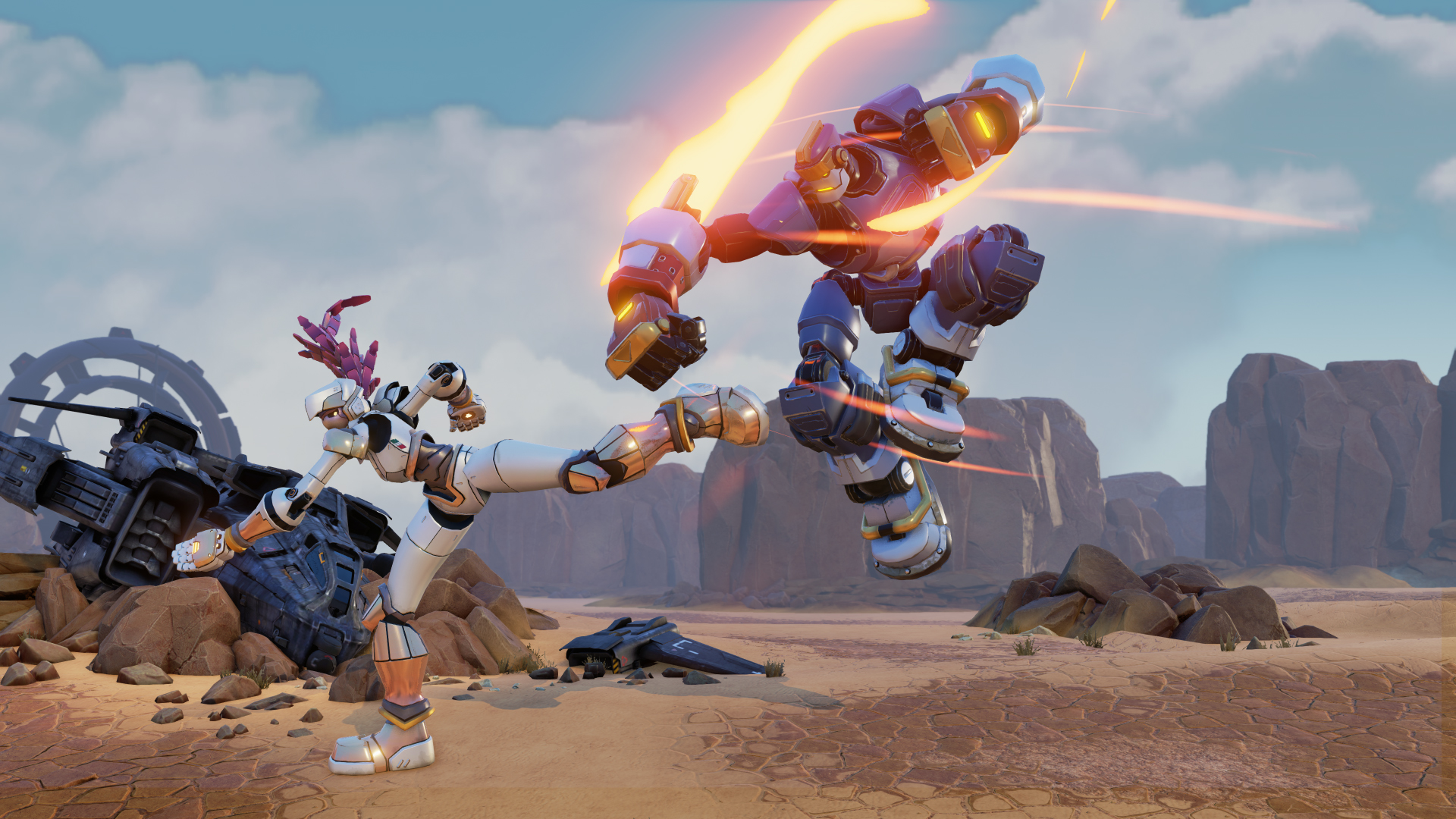
-
Rising Thunder Preview #5
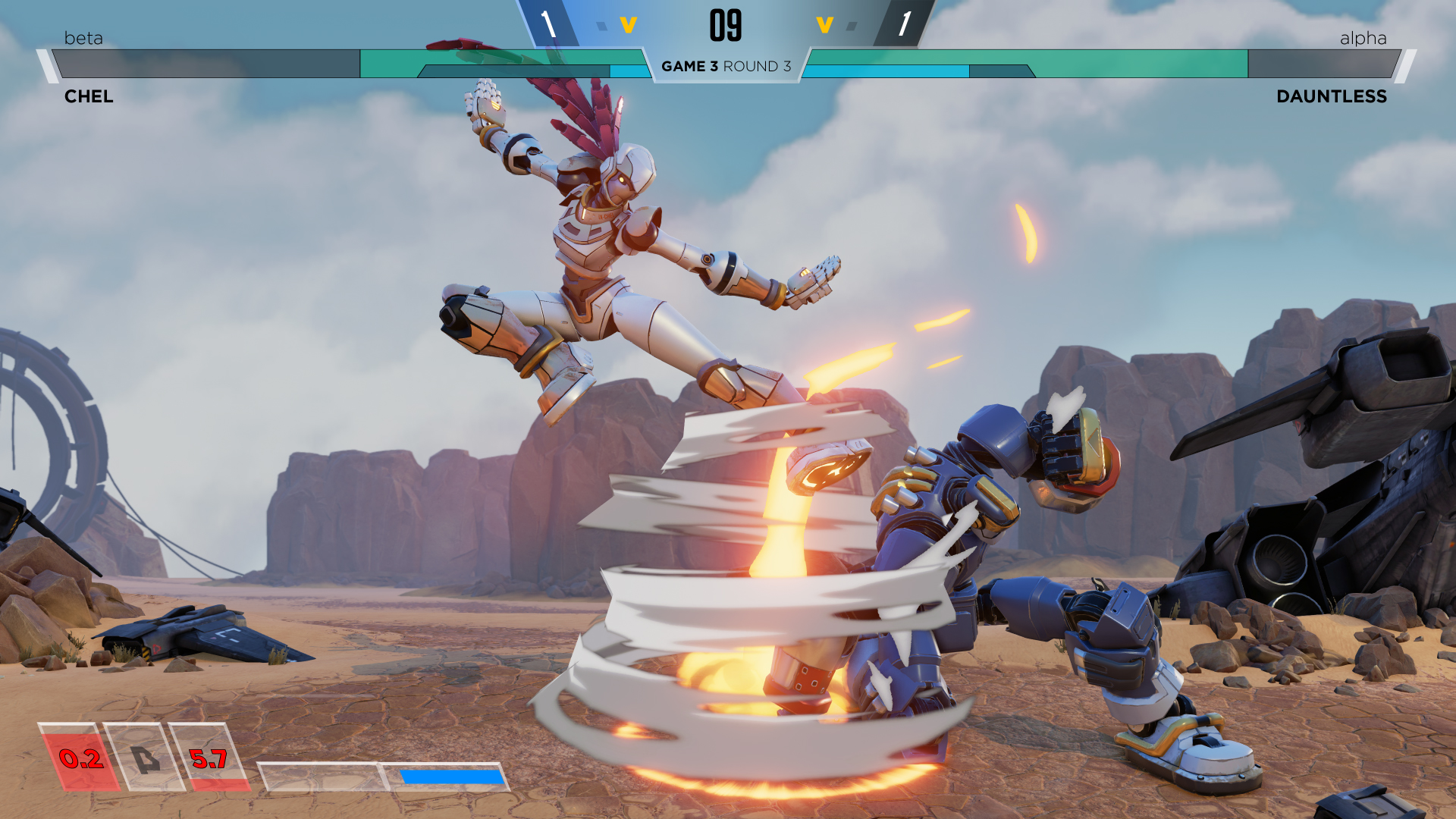
-
Rising Thunder Preview #6
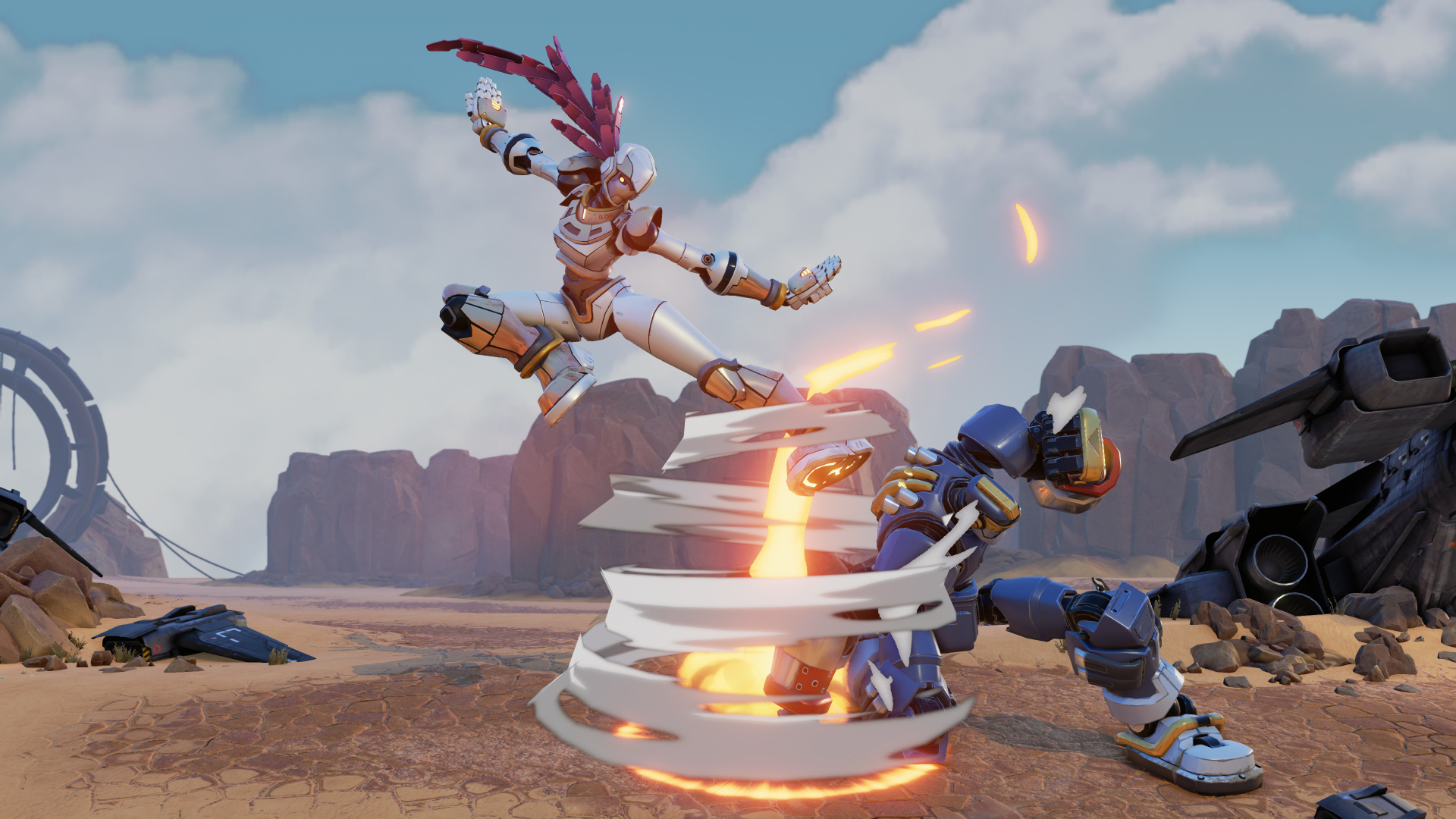
-
Rising Thunder Preview #7
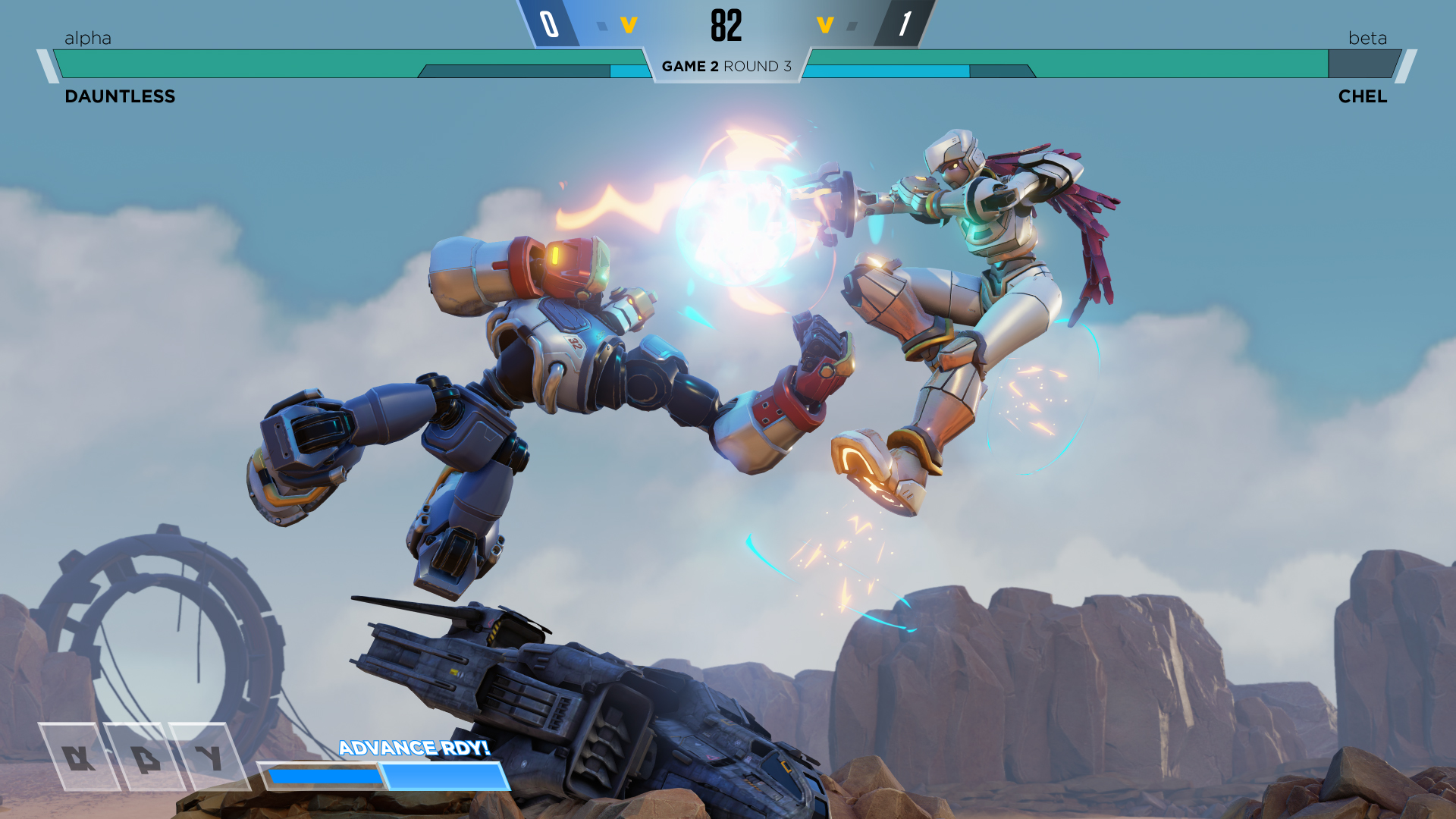
-
Rising Thunder Preview #8
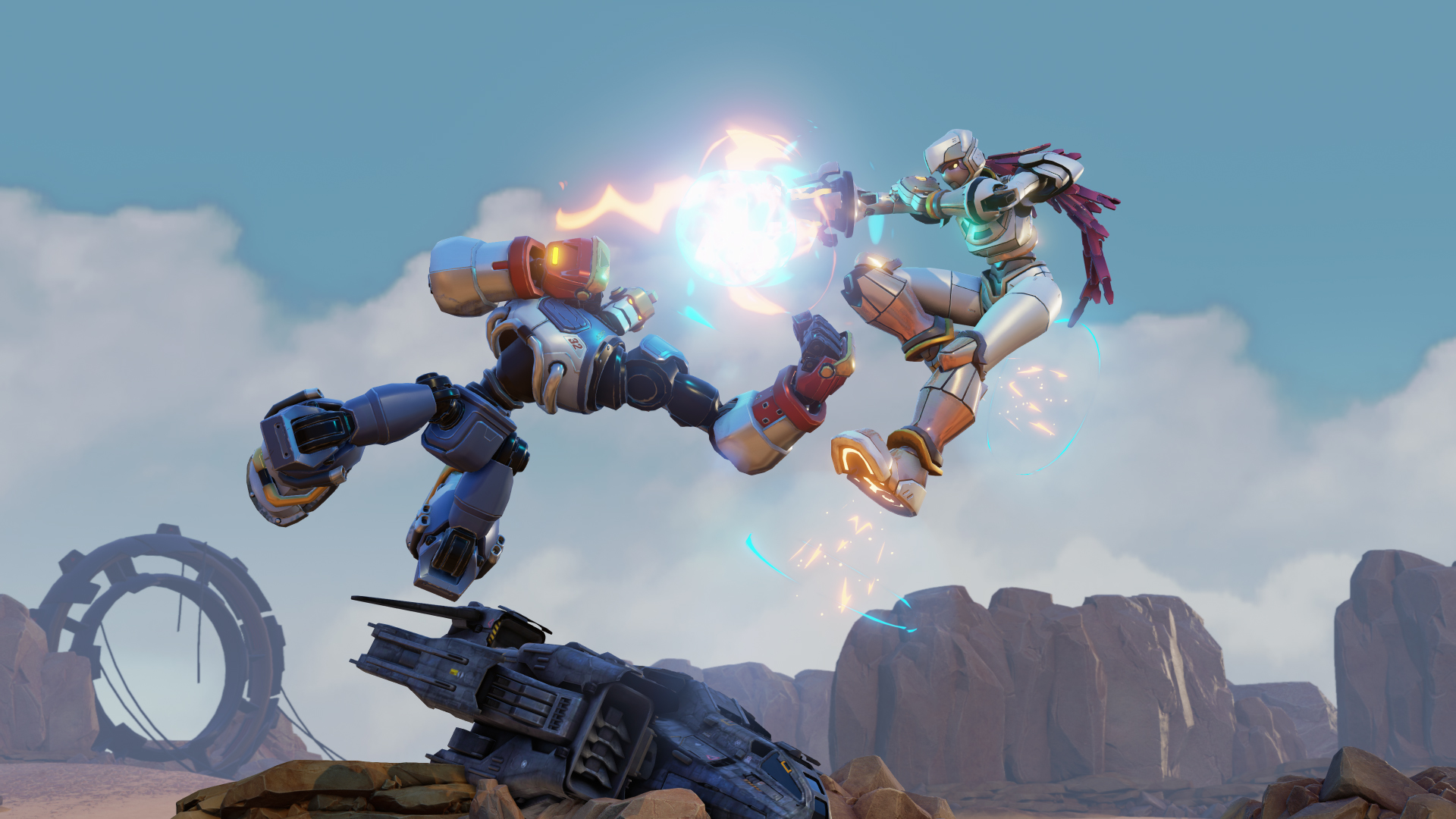
-
Rising Thunder Preview #9
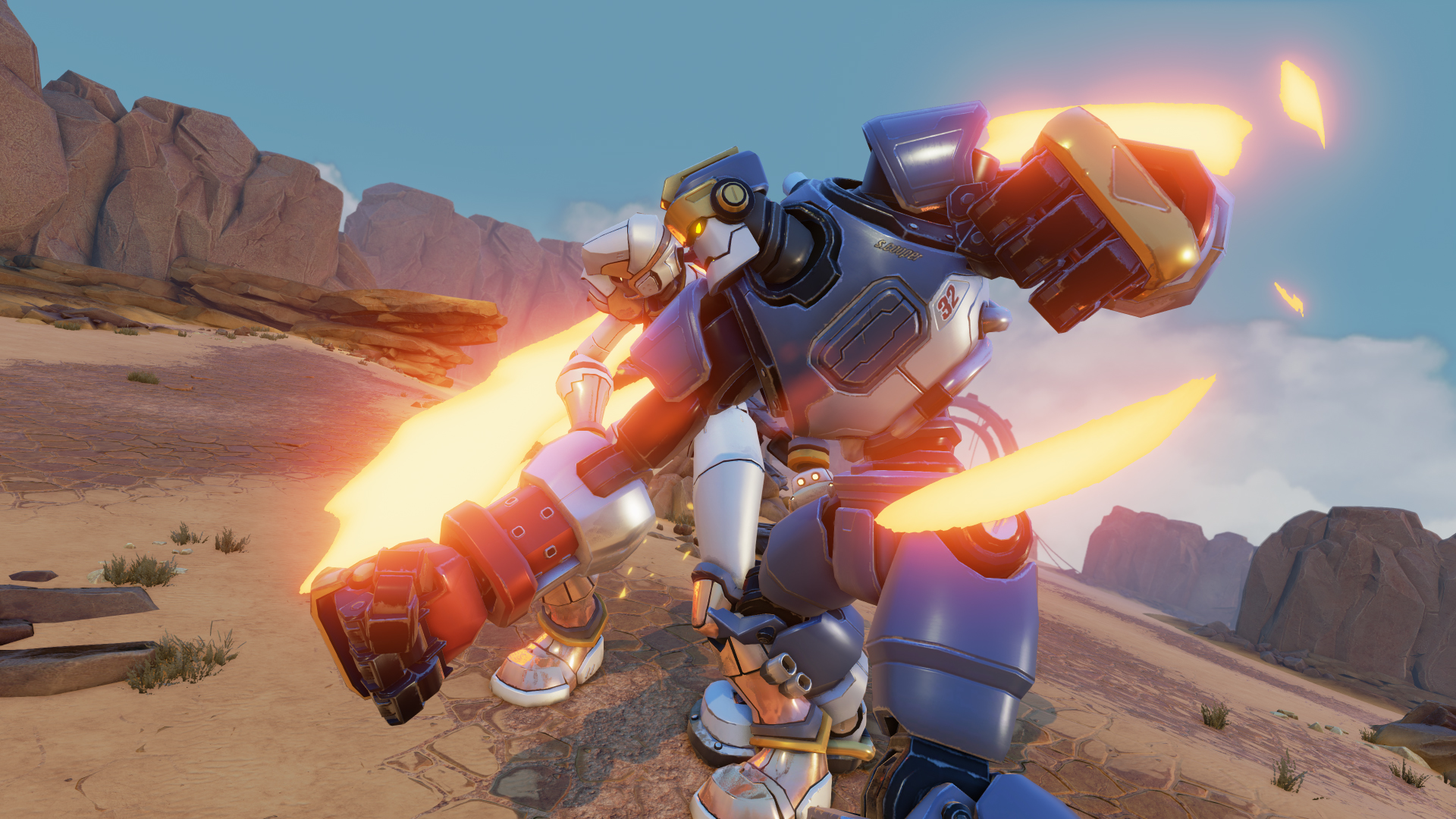
-
Rising Thunder Preview #10
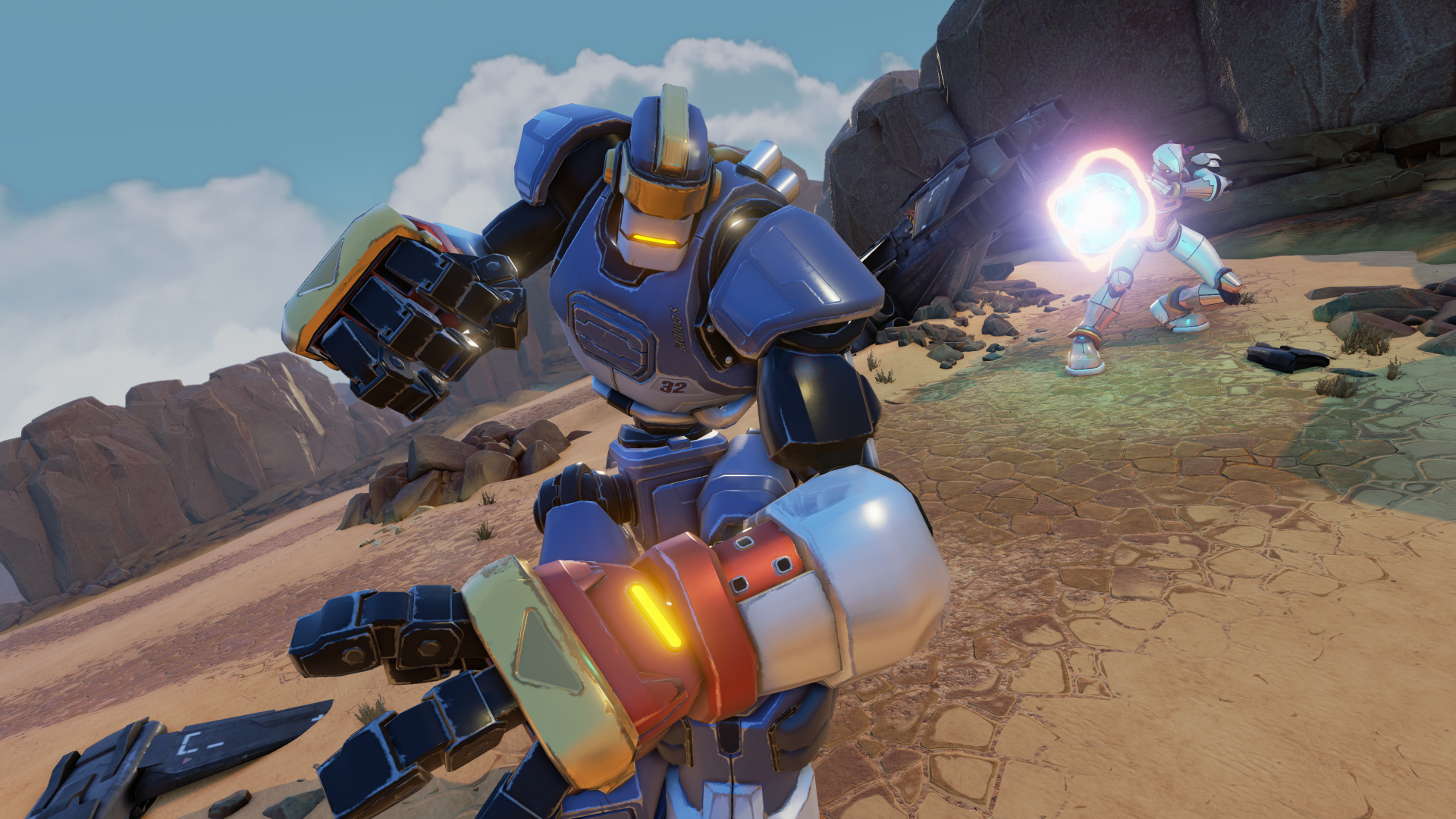
-
Rising Thunder Preview #11
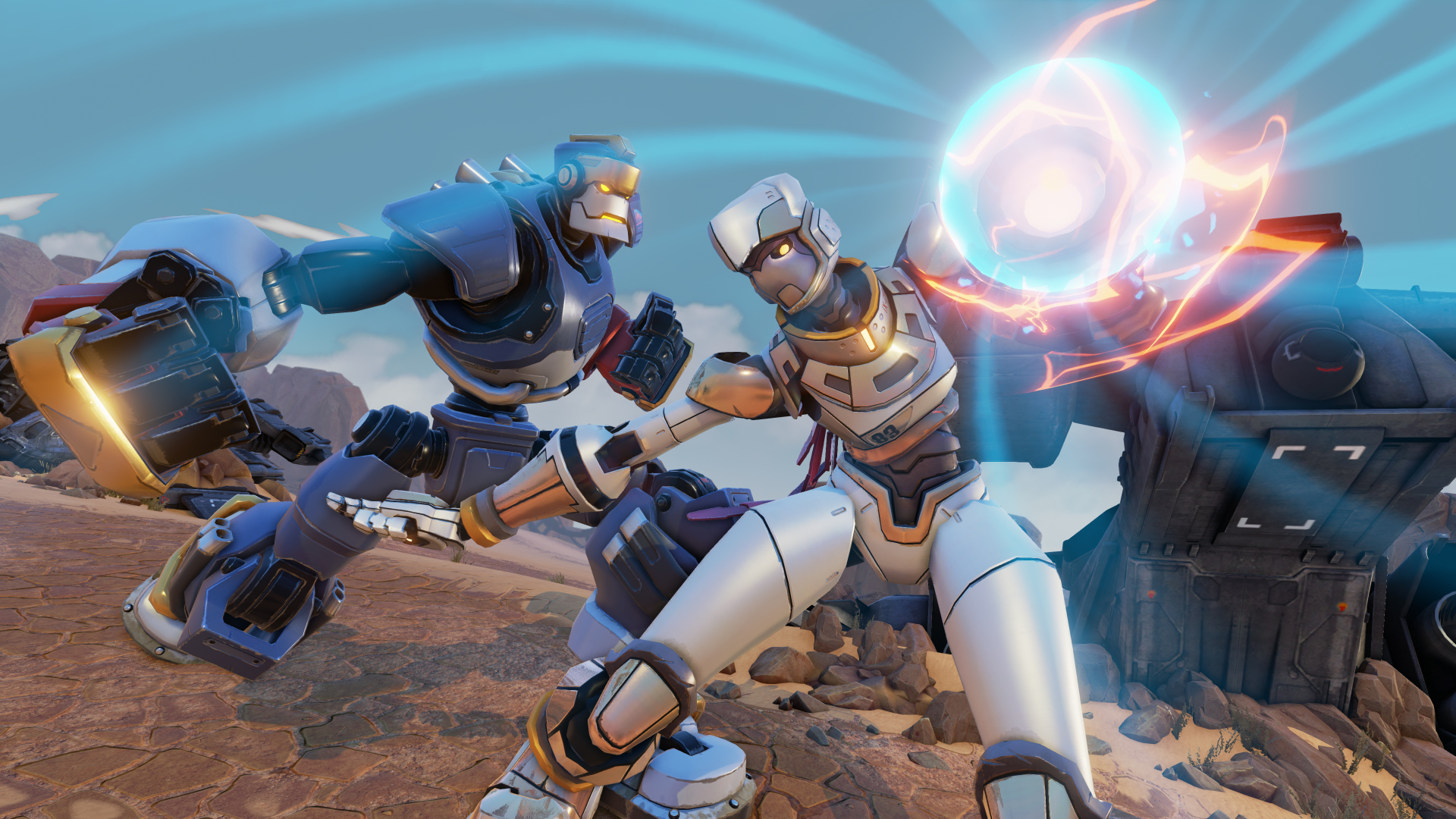
-
Rising Thunder Preview #12
